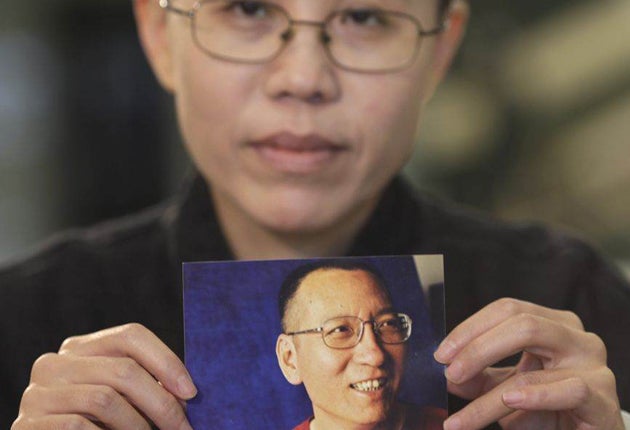Favourite for Peace award is causing conflict in China

China's communist Party has been casting anxious glances towards Oslo to see if Liu Xiaobo wins this year's Nobel Peace Prize. If the jailed dissident wins the award, Beijing will be faced with another major blow to its reputation – and a victory for many human rights activists campaigning for it to change.
But not every dissident supports Mr Liu, one of China's most famous activists, who is serving an 11-year prison term for subversion. An essayist and teacher, he has become China's most famous dissident over the last two decades for his advocacy for free expression, human rights and democracy.
As his name has risen to the top of the shortlist for today's prize, though, a group of overseas dissidents have hit out at the possibility that he will be awarded the prize. Fourteen of them have written to the Nobel committee to express their view. They say he would be unsuitable because he has softened in his attitudes to China's leaders. "His open praise in the last 20 years for the Chinese Communist Party, which has never stopped trampling on human rights, has been extremely misleading and influential," they wrote.
The signatories include Zhang Guoting, a writer who now lives in Denmark but spent 22 years in prison in China, and Lu Decheng, now living in Canada, who was jailed for throwing paint-filled eggs at the portrait of Chairman Mao in Tiananmen Square.
But if their views are strongly held, there are many dissidents who feel otherwise. They point to Mr Liu's repeated imprisonment as proof of the strength of his opposition. Last year, he was jailed on charges of "incitement to subvert state power and overthrow the socialist system" because of his key role in writing "Charter 08," a political manifesto calling for gradual political reforms in China. More than 300 people, including some of China's leading intellectuals, signed it and it earned Mr Liu the longest sentence ever given out for dissent.
"Liu is the most famous of countless Chinese government critics languishing in prison for peacefully expressing their views," said Nicholas Bequelin, a senior researcher at Human Rights Watch. "He falls squarely into the Nobel Peace Prize tradition of honouring human rights activists who are calling for peaceful political reform... If Liu were to win, the most positive effect would be a groundswell of interest in Charter 08 and Liu's writings in China itself."
Mr Liu previously spent nearly two years in jail for joining the 1989 protests in Tiananmen Square. He also prevented more bloodshed by successfully negotiating with the army the evacuation of the last remaining students on the square. Comments online have been largely supportive of Mr Liu. "To me, Liu Xiaobo's effort in the past few years have been great, and he deserves to be known by more people from the outside world," said Wen Kejian, a writer from Zhejiang province. "Premier Wen Jiabao has also been vocal on political reform, which gives us more room for imagination. "Liu Xiaobo is a representative of the non-governmental force, and if he wins this award, it will prove that this kind of non-governmental side to China's growth is getting mature, and this is a very important sign."
Subscribe to Independent Premium to bookmark this article
Want to bookmark your favourite articles and stories to read or reference later? Start your Independent Premium subscription today.

Join our commenting forum
Join thought-provoking conversations, follow other Independent readers and see their replies